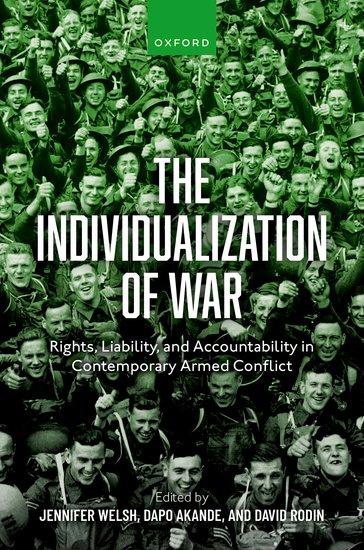
Zustellung: Fr, 25.07. - Mi, 30.07.
Versand in 2 Wochen
VersandkostenfreiBestellen & in Filiale abholen:
The Individualization of War examines the status of individuals in contemporary armed conflict in three main capacities: as subject to violence but deserving of protection; as liable to harm because of their responsibility for attacks on others; and as agents who can be held accountable for the perpetration of crimes.
Inhaltsverzeichnis
- Introduction: Understanding Individualisation
- Part I Extending Individualisation in the Ethics and Law of Armed Conflict
- 1: Adil Haque: After War and Peace
- 2: Anne Peters: The Direct Rights of Individuals in the International Law of Armed Conflict
- 3: Bradley Jay Strawser: The Supererogatory Moral Risks of Military Service
- Part II Rethinking Individualisation: Philosophical and Psychological Perspectives
- 4: Victor Tadros: Collective Values in Just and Unjust Wars
- 5: Benjamin Valentino: Situationism and the Individualisation of Responsibility in War
- Part III The Consequences of Individualisation
- 6: Paola Gaeta and Abhimanyu George Jain: The Individualisation of IHL Rules through Criminalisation for War Crimes: Some (un)intended Consequences
- 7: Sarah Nouwen: Tensions between the Pursuit of Criminal Accountability and Other International Policy Agendas in Situations of Armed Conflict
- 8: Paul D. Williams: Two Decades of Civilian Protection Mandates for United Nations Peacekeepers
- Part IV Beyond Formal Armed Conflict
- 9: Pablo Kalmanovitz and Miriam Bradley: Individualisation of Collectivisation in Contexts of Organized Criminal Violence: The Case of Mexico's 'War on Organised Crime'
Produktdetails
Erscheinungsdatum
14. März 2024
Sprache
englisch
Seitenanzahl
288
Herausgegeben von
Jennifer Welsh, Dapo Akande, David Rodin
Verlag/Hersteller
Produktart
gebunden
Gewicht
590 g
Größe (L/B/H)
231/163/36 mm
ISBN
9780192872203
Entdecken Sie mehr
Bewertungen
0 Bewertungen
Es wurden noch keine Bewertungen abgegeben. Schreiben Sie die erste Bewertung zu "The Individualization of War" und helfen Sie damit anderen bei der Kaufentscheidung.









